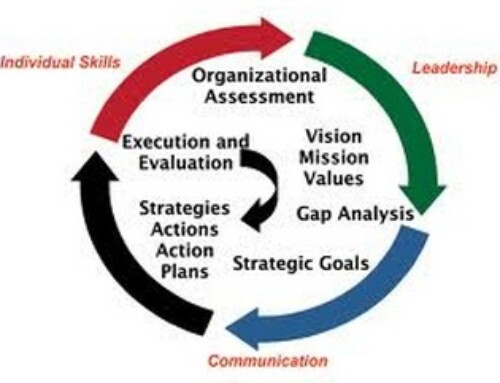The great statistical debate continues on the impact of Millennials today on home buying. About a year ago, I wrote about the conflicting data (“Millennial Marketing Madness”) that argued Millennials were not going to drive the majority home sales in 2015 despite what marketers and self-interested parties were claiming.
Fast-forward today, and it looks like the hardcore data was accurate and the marketers missed the mark. Today’s headlines have taken quite a turn from those we saw last year. Now those pundits who said Millennials would be driving today’s housing market are scrambling to explain why they are not or aggressively marketing to Millennials to tell them why they should buy.
Among recent headlines:
- Millennials face tough obstacles to buying a home (Boston Globe)
 and has a couple of decades of experience, reminded me these factors are much more like a matrix, with one impacting the other.
and has a couple of decades of experience, reminded me these factors are much more like a matrix, with one impacting the other. - Whether They Want to Rent or Buy a Home, Millennials Are Basically Out of Luck (Slate)
- Why Millennials Are Having a Tough Time Buying A Home (The Street)
- 4 Reasons Millennials Still Aren’t Buying Houses (Forbes)
- Millennials better off buying a home than renting (Houston Chronicle)
- Why Millennials should buy a home today (Builder magazine)
- It’s Better for Millennials to Buy Than Rent—For Now (Bloomberg)
If you want a dose of what is really going on, talk to mortgage loan officers who are in the trenches every day trying to help folks navigate the mortgage morass that exists today. They will most likely tell you top three things that are keeping most Millennials from buying homes are: DTI, DTI and DTI.
I reached out to Matt Culp, whom I consult for and who owns Bainbridge Lending Group, a small, successful brokerage firm on Bainbridge Island, WA. In the articles (above) they often discuss DTI thresholds, credit score minimums, and interest rates, yet they fail to point out that these three things are interconnected. Matt, who grew up in the mortgage business
You can’t just say that a Millennial who has a DTI of 43 percent and credit score of 620 is going to get a 30-year fixed rate loan with no points for 3.75%. A higher credit score is going to get you the better interest rate. To get the best rate, you need a credit score of at least 740 or higher today (most stories keep reporting 720; just not true in the real world). Remember, that higher rate means a higher payment and that pushes the borrower’s DTI higher. It’s a Catch 22 for Millennials today (who will probably have to Google the phrase Catch 22 to understand my point).
DTI is the #1 barrier to Millennial homeownership
Yes, Debt-to-Income is the most likely true cause that is keeping the vast majority of Millennials as home renters instead of homeowners. They have too much total debt and not enough total income to make the numbers work for most home loans. And yes, there are other factors, including lack of down payment funds and lousy FICO scores.
But it’s not that Millennials don’t want to buy, they do: In masses. And for those who think Millennials are the renter generation, you might want to re-consider looking at what happens when Millennials have kids. Millennials will drive our housing sales market for many years to come, just not right now.
Are Millennials and Boomers really that different?
It’s understandable that many brokerages are building business models and marketing campaigns to specifically target Millennial home buyers. With a market size that is larger than Boomers (79 million vs. 76 million), it’s too important of a market to ignore. They also buy into the convention wisdom that you can’t sell them your father’s Oldsmobile (or for many, even a car) and you probably can’t sell them a McMansion (see here). CW also says that Millennials want to be communicated with differently.
Yet researchers are now finding that conventional wisdom may be wrong when it comes to Millennials being entirely different from Boomers. A recent study from Radius Global Market Research (Radius GMR) examined Millennials compared to Boomers. And while they found clear differences, they also found some striking similarities between these two markets, something real estate firms need to pay attention to, including:
Similarities:
- Both Millennials (90%) and Boomers (86%) routinely research products online
- Boomers and Millennials both use social media: female Boomers and Millennials use Facebook at about the same rate (90%)
- Quality or price/value is where they both tend to focus on when purchasing products
- Both groups prefer to buy travel online
Differences:
- Millennials are more optimistic than Boomers
- Millennials and Boomers have different buying priorities: For Millennials it is travel and apparel. Boomers are more focused on “necessities” – food and insurance rank higher
- Millennials are totally mobile. 60% of Millennials research via smartphones, while only 14% of Boomers do, and Boomers are twice as likely (38%) to consume newspapers and magazines
- Millennials listen to word-of-mouth recommendations: It has the greatest influence on them for all purchase decisions. Boomers relay more on advertising and advice from sales people
Parting thoughts
Millennials should be targeted, but Boomers are a better primary market today. Boomers, with their wealth (real savings vs. student debt), income, and credit score profiles should earn the majority of your marketing attention today, not Millennials, at least for the vast majority of brokerages. That’s not to say a boutique firm can’t make a killing marketing solely to Millennials, but the data is not telling us that all brokerages everywhere need to set their sites mainly on Millennials.
Remember, Boomers also want their kids, like their parents did, to have better opportunities than they had and they have a lot of money to spend; mortgage brokers, like Matt, will tell you a lot of Boomer parents are already helping their Millennial kids buy homes.
But please, don’t blame tighter lending standards that have lowered DTIs as the best solution to fix this problem. Yes, most people agree that the pendulum has swung too far creating sometime ridiculous lending rules, but higher DTIs are not the answer. Just raise your hand if you want to go back to what happened with poor loan qualification standards. Anyone who lived through this mess will tell you we don’t want to go back to using a mirror as a mortgage qualification test (if you breath on it and it fogs up, you qualify because it proves you are alive).
Besides, as Matt points out, just fixing one side of the equation won’t fix the other. Poor credit scores (Millennials average around 624) is often an indication of high debt. Moving the bar on the mortgage DTI qualification doesn’t pay down a Millennial’s monthly debt.
Higher DTIs also don’t solve the fact that Millennials need money to buy a home: a TD Bank suvey found that over 70 percent of Millennials don’t have a enough for a down payment. And please don’t tell me that’s only because they don’t know about low down payment loans. Again, the reality is a lower down loan means a higher mortgage payment and the DTI, once again, will be out of whack for many Millennials.
In the end, the solution will be time: It fixes nearly all problems. Boomers that went house bust, the ones who had a do a short sale, went though a foreclosure or those who double-mortgaged their houses underwater are becoming eligible again. Time is healing these wounds and many of these folks are starting to return to the home buying market.
The same will hold true for Millennials: Their student debt will go down, their incomes will go up, their credit scores will improve, they will save more and they will have kids and want more space. It just won’t be tomorrow, or next week, for most.
But for those brokerages in it for the long game, the best advice for looking at Millennials is this: Patience will pay, but please, for now pay attention to the Boomers.





[…] Originally posted October 27, 2015 by Kevin Hawkins at WAVGroup.com. […]